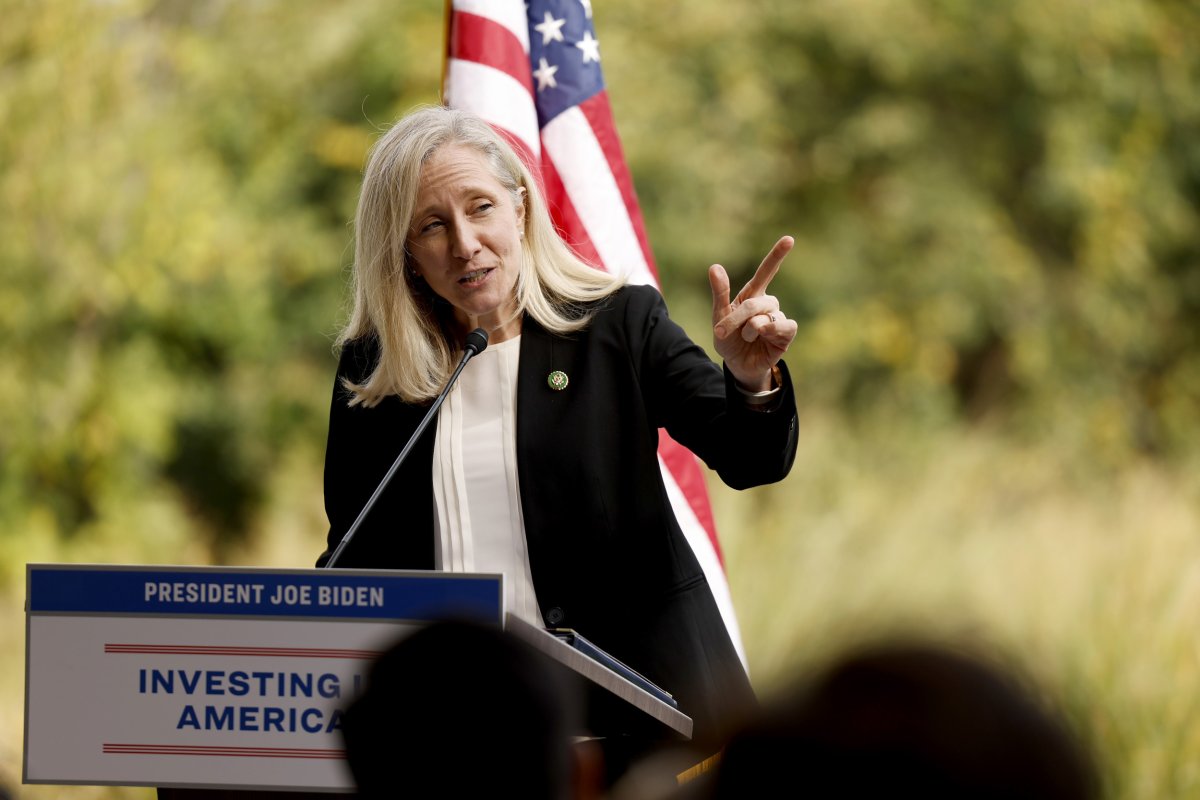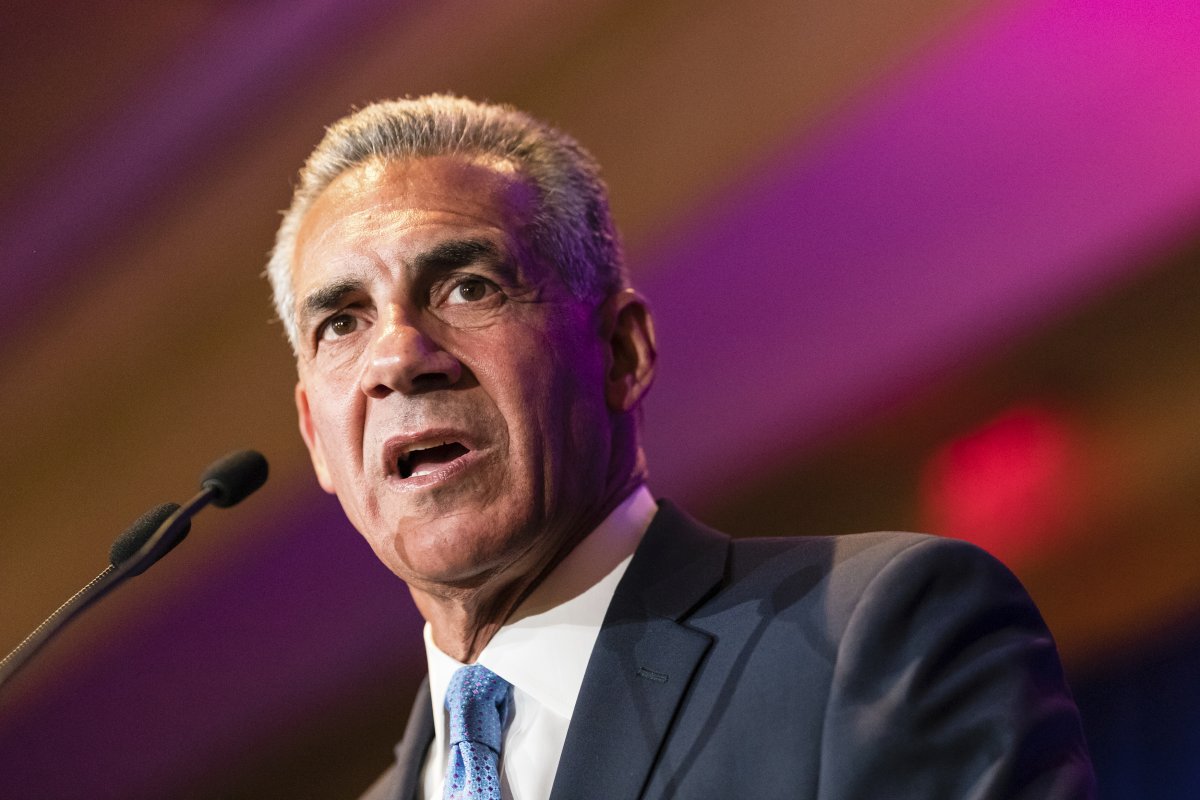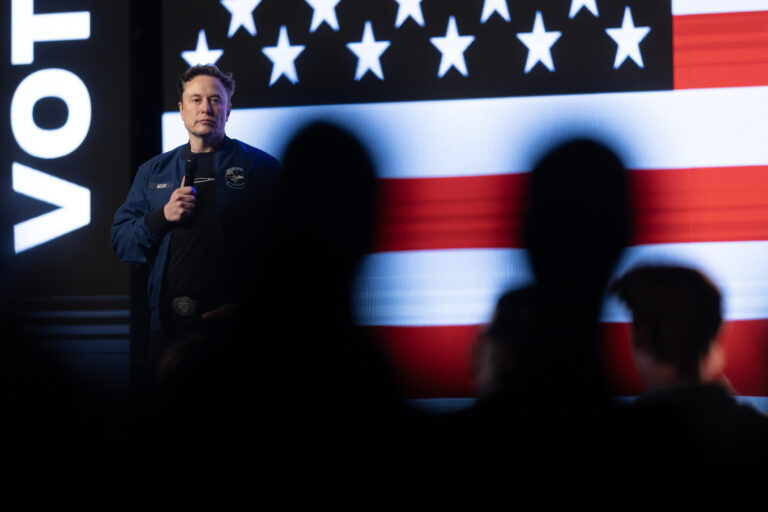Fresh off a stinging defeat in Wisconsin’s Supreme Court race — the lone statewide election before November — Republicans are heading into two high-stakes gubernatorial contests where Democrats have found a new political weapon: Elon Musk.
Susan Crawford, the Democratic-backed candidate in the Wisconsin judicial race, defeated the Trump and Musk-backed Brad Schimel to cement a liberal majority on the state’s high court for at least the next three years, according to the Associated Press. Turnout was so high statewide that several polling stations ran out of ballots.
With Musk’s Department of Government Efficiency (DOGE) initiative responsible for thousands of federal job cuts, Democratic candidates for governor in Virginia and New Jersey are preparing to make Musk’s name—and his policies—synonymous with their opponents on the campaign trail this summer and fall.
The Context
Musk, who spent over $250 million to support Trump’s reelection and another $21 million in a failed attempt to boost Schimel in the Wisconsin Supreme Court race, now finds himself at the center of two of the most closely watched contests of the year—even though he isn’t on any ballot.
With DOGE layoffs and budget cuts continuing, his personal popularity falling through the floor, and Democrats attempting to capitalize on the backlash surrounding his increasingly unpopular image, the gubernatorial elections in November may hinge on whether Musk’s brand — and money — helps Republicans win or becomes an anchor dragging them down.
What To Know
The backlash against Musk and DOGE has already prompted national Democrats to incorporate the Tesla CEO into their broader campaign messaging, casting him as a symbol of Trumpian overreach. For Democrats searching for a path forward, the Wisconsin defeat offered a rare glimmer of hope. “This race was absolutely a referendum on Elon Musk,” former Wisconsin Lieutenant Governor Mandela Barnes told Newsweek.
Doug Gordon, a Democratic strategist, said the image of Musk as a government saboteur is a potent one. “Outside the hardcore Trump base, Musk is a political liability for Republicans,” he told Newsweek. “It is clear that his efforts to take a chainsaw to Social Security, Medicare, and Medicaid are deeply unpopular.”

Photo by Scott Olson/Getty Images
In Virginia, former congresswoman Abigail Spanberger is already testing that strategy. Spanberger, a Democrat running to succeed the term-limited GOP Governor Glenn Youngkin, has been sounding alarms about DOGE’s sweeping impact across the commonwealth, which is home to one of the nation’s highest concentrations of federal workers.
“Frankly, it’s out of touch with the real concerns that people have,” Spanberger told Semafor in a February interview about Youngkin’s attempt to soften the blow of federal layoffs with a job placement portal. “It’s discounting the livelihoods and the mission to which people have devoted themselves.”
On the Republican side, Lieutenant Governor Winsome Earle-Sears, former Delegate Dave LaRock, and former state Senator Amanda Chase are among those running in a crowded Republican primary. Either Spanberger or Earle-Sears would make history as the state’s first female governor.

Anna Moneymaker/Getty Images
Spanberger has been publicly recounting encounters with Virginians whose lives and businesses have already been affected by Musk-led government cuts. “I had a woman who owns a tattoo parlor and piercing shop in Virginia Beach come to me with concerns about the impact on her, because of the threats of these firings on her customers,” she said. “I have spoken with owner associations of convenience stores… and they’re deeply worried that it will continue.”
Republicans in Virginia, a formerly red state that is now reliably in the Democrats’ column, are divided on how to handle Musk’s influence. Earle-Sears, the lieutenant governor, has oscillated between supporting DOGE and offering sympathy to workers.
“He’s making an audit of who’s doing what,” she told the Associated Press in February. LaRock, the former state lawmaker who entered the primary last week, has taken a firmer stance, pledging to “help displaced workers transition into private sector roles” and proposing a “Virginia DOGE.”
A GOP Dilemma
Musk’s favorability has been in steady decline amid mounting DOGE backlash. A new poll by the Harvard Center for American Political Studies and HarrisX, conducted among 2,746 registered voters from March 26–27, found that 49 percent view Musk unfavorably, compared to just 39 percent who view him favorably.
Carter Wrenn, a veteran Republican strategist, warned that Musk’s baggage might still become a liability for the GOP. “Yes, polls are showing his popularity is upside down,” he told Newsweek. “That could definitely be a problem—especially with swing voters, independents, and ticket splitters.”
Despite this, national GOP leaders remain skeptical that federal layoffs will be a defining issue, at least for the pair of looming gubernatorial races. “Seventy-seven million voices outweighed the voices at those town halls,” said Republican Representative Lisa McClain of Michigan, dismissing protestors and federal worker testimonials as “share your story” messaging.

Stefan Jeremiah/AP Photo
In New Jersey, where Democrats are defending the governor’s mansion after Phil Murphy’s term ends, party operatives are closely watching developments in nearby Virginia. Republicans Jack Ciattarelli, Jon Bramnick and Bill Spadea are competing for their party’s nomination.
Democrats are zeroing in on Virginia and New Jersey as the opening chapters of a much larger political saga. With control of key statehouses on the line, party leaders see these contests as early tests of momentum—and messaging—as they gear up for the 2026 midterms.
“The stakes couldn’t be higher, and the American people will continue to look increasingly toward the states for strong Democratic leadership,” Kansas Governor Laura Kelly, Chair of the Democratic Governors Association, told Newsweek.
While local issues will certainly shape both races, the elections will also unfold nearly a year into Trump’s second term—a period marked by dramatic policy shifts led by Trump and Musk, many of which are still to play out.
“But money isn’t everything, and Elon makes a very resonant villain for Democrats,” said Democratic strategist Matt Bennett in an interview with Newsweek.
“The image of Musk on stage at CPAC, wearing sunglasses indoors and wielding a chainsaw, is certain to appear in Democratic ads. Because it points to the central case that Democrats should be making against MAGA Republicans: they promised to bring order—at the grocery store, at the border, in the streets—and instead they’ve brought chaos.”
What People Are Saying
Doug Gordon, Democratic strategist, told Newsweek: “The calculation Elon [Musk] and Trump were making is that he is still popular enough with the GOP base to drive turnout. Time will tell if that bet pays off or not.”
Mandela Barnes, former lieutenant governor of Wisconsin, told Newsweek: “To Elon Musk, spending $30 million is like the rest of us spending maybe $50. It’s nothing to him, but the impact on democracy is huge.”
Alex Patton, Republican political consultant, told Newsweek: “As always, the press and pundits will read too much into any one special election result, but that is just the time we are in. The results will dominate the news cycle for a day, and any win by the Democrats may show the Democrats have some fight in them and enable donors to brush the cobwebs off their wallets.”
Kansas Governor Laura Kelly, Chair of the Democratic Governors Association, said in a statement shared with Newsweek: “Tonight, the people of Wisconsin spoke loudly and clearly—their votes can’t be bought. Wisconsinites from every corner of the state showed that working families firmly reject the daily chaos coming out of D.C. in favor of statewide leaders who are committed to upholding the rule of law and protecting fundamental freedoms.”
What Happens Next
Democrats are preparing to test whether tying Republicans to Elon Musk and the DOGE agenda can move suburban swing voters and federal worker-heavy districts in their favor. The 2025 gubernatorial elections in Virginia and New Jersey will be held on Tuesday, November 4. Both states will hold their primaries a week apart in June.
Update 4/2/25, 11:56 p.m. ET: This article was updated to include new comments from Kansas Governor Laura Kelly, Chair of the Democratic Governors Association.


